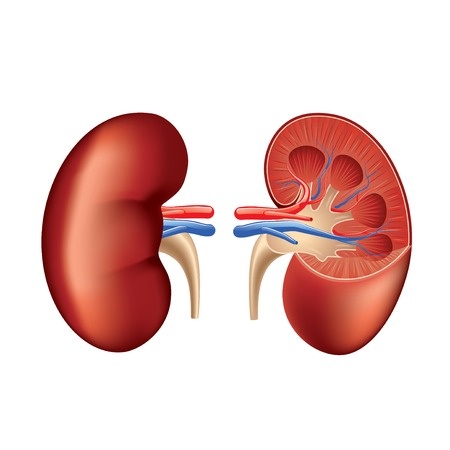Nexium Kidney Failure

A possible link between Nexium and renal (kidney) failure has been suggested by a number of recent studies. Mounting evidence also indicates that long-term use of Nexium and other proton pump inhibitors could potentially lead to other kidney complications, including nephritis and chronic kidney disease.
Nexium Lawsuit Reviews
The nationwide law firm of Bernstein Liebhard LLP is now offering free legal reviews to Nexium users who were diagnosed with serious kidney complications, including renal failure and chronic kidney disease. If you think you or a loved one might be eligible to file a Nexium lawsuit, please call (888) 994-5118 to get in touch with our legal team today.
Nexium: What’s the Problem?
Nexium, dubbed “the little purple pill,” is the most popular proton pump inhibitor on the market. Nexium 24HR is also available over-the-counter. Proton pump inhibitors relieve acid reflux by reducing the amount of gastric acid produced in the stomach. While Nexium is extremely effective, the reduction of gastric acid can inhibit the body’s ability to absorb certain nutrients, including magnesium, which are vital to kidney function.
Proton pump inhibitors rank among the most widely-used medications, with more than with 131 million prescriptions dispensed in 2013. While they are intended for short-term use, many people take Nexium and other proton pump inhibitors over long-periods of time, which may put them at risk for serious complications including magnesium deficiency, certain fractures, and serious infections such as pneumonia and C. difficile diarrhea. A growing body of evidence also suggests that long-term use of proton pump inhibitors may harm the kidneys.
FDA Adds Nephritis Risk to Nexium Label
In December 2014, the U.S. Food & Drug Administration (FDA) ordered that new warnings regarding acute interstitial nephritis, a sudden and severe inflammation of the kidneys, be added to the labels of all proton pump inhibitors, including Nexium. Symptoms of nephritis can occur at any time while using Nexium, and roughly 50% of those who experience the condition will develop kidney failure. In fact, about 15% of hospitalizations for renal failure are the result of nephritis.
Symptoms associated with nephritis may include:
- Reduced urination
- Blood in urine
- Malaise (generally feeling sick all the time)
- Poor appetite
- Nausea, occasional vomiting
- Swelling due to fluid retention
- Confusion
- Coma
- Fatigue and weakness
Studies Link Nexium to Chronic Kidney Disease, Kidney Failure
- April 2016: A study published in the Journal of the American Society of Nephrology suggested that patients who use proton pump inhibitors may be more likely to develop kidney failure or chronic kidney disease compared to those who took another class of heartburn medications. Overall, the results suggested that patients taking the medications are 96% more likely to develop kidney failure and 28% more likely to develop chronic kidney disease. The findings also indicated that the overall risk increases with higher doses and longer duration of use. Read More
- January 2016: Research in the January 11th issue of JAMA: Internal Medicine, suggested that patients who use proton pump inhibitors might face a 20 to 50% higher risk of kidney disease. Those who used the medications twice per day had a 46% increased risk, while those who used proton pump inhibitors once per day faced a 15% increased risk. Drugs like Nexium were also associated with a 39% higher risk of chronic kidney disease compared to those using H2 blockers like Zantac. Read More
Learn More about Filing a Nexium Lawsuit
Bernstein Liebhard LLP offers free legal reviews to individuals who may have suffered serious kidney damage, including renal failure and chronic kidney disease, due to their use of Nexium. To schedule your review, please call (888) 994-5118.
- Public Citizen (2014) “FDA’s Partial Approval of Public Citizen’s Petition for Stronger Warnings on Certain Proton Pump Inhibitor Products Comes Too Late” http://www.citizen.org/pressroom/pressroomredirect.cfm?ID=4324
- JASN (2016) “Proton Pump Inhibitors and Risk of Incident CKD and Progression to ESRD” http://jasn.asnjournals.org/content/early/2016/04/13/ASN.2015121377.abstract
- JAMA: Internal Medicine (2016) “Proton Pump Inhibitor Use and the Risk of Chronic Kidney Disease” http://archinte.jamanetwork.com/article.aspx?articleid=2481157
Get the latest news and litigation updates about this case by following us on Facebook. Click the "Like" button below.
Follow Us


